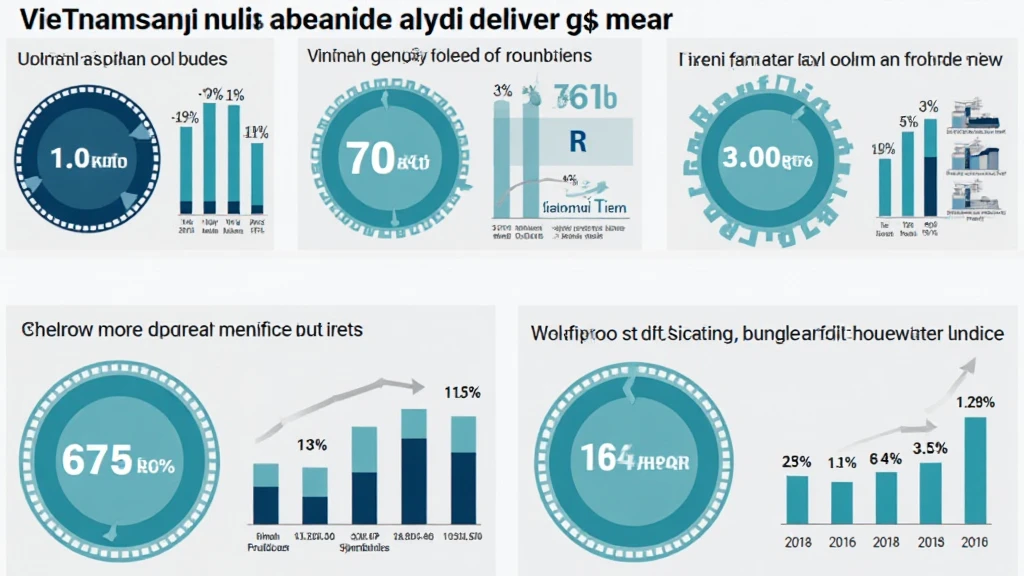Vietnam’s Crypto Stablecoin Policies: A Comprehensive Guide
Vietnam’s Crypto Stablecoin Policies: A Comprehensive Guide
With the rise of digital currencies globally, Vietnam has emerged as a significant player in the crypto market. Recent studies indicate that over 16 million people in Vietnam are engaging with cryptocurrency, showcasing a steady growth in user adoption. While the popularity of cryptocurrencies continues to surge, the Vietnamese government has taken a cautious approach towards regulating stablecoins. This article aims to provide an in-depth analysis of Vietnam’s crypto stablecoin policies, the challenges faced in implementation, and what this means for the future of digital assets in the country.
Understanding Stablecoins in Vietnam
Stablecoins, defined as cryptocurrencies pegged to a stable asset, offer users the advantage of reduced volatility compared to traditional cryptocurrencies like Bitcoin. In Vietnam, stablecoins have gained traction, particularly as means of transferring money and facilitating trade. However, navigating the regulatory landscape is crucial for those interested in utilizing these digital assets.
- Types of Stablecoins: Stablecoins in Vietnam can be classified into three categories: fiat-collateralized, crypto-collateralized, and algorithmic.
- Market Demand: The demand for stablecoins is largely driven by individuals and businesses seeking to mitigate risks associated with the volatility of other cryptocurrencies.
The Regulatory Landscape for Stablecoins
As of 2023, the Vietnamese government has outlined several policies to govern the utilization of cryptocurrencies, including stablecoins. The State Bank of Vietnam (SBV) has taken a proactive stance in establishing frameworks that promote a secure crypto environment.

Despite the encouraging outlook, the lack of comprehensive regulations for stablecoins poses significant challenges:
- Legal Recognition: Currently, the legal recognition of stablecoins remains ambiguous, raising concerns for users and businesses.
- Anti-Money Laundering (AML) Compliance: The absence of clear AML guidelines specifically tailored for stablecoins is a significant hurdle.
Recent Developments in Policy
In 2025, the Vietnamese government is expected to release concrete guidelines surrounding crypto stablecoins, particularly focusing on aspects such as consumer protection and reporting standards. Initiatives such as “tiêu chuẩn an ninh blockchain” (blockchain security standards) will guide compliance among stablecoin issuers.
Impact of Global Trends on Vietnam’s Crypto Policies
Global trends in cryptocurrency regulation influence Vietnam’s approach to stablecoins. With countries like the United States and those in the European Union developing robust frameworks, Vietnam aims to align its regulations to foster innovation while safeguarding its financial system.
- Lessons from Other Countries: By examining the policies implemented abroad, Vietnam can better adapt its own regulations.
- International Collaborations: Partnerships with international regulatory bodies may enhance the credibility and robustness of Vietnam’s policy decisions.
The Role of Digital Innovation in Shaping Policy
Technological advancements are crucial in shaping the future of stablecoin policies. Innovations such as decentralized finance (DeFi) and blockchain technology present opportunities and challenges that policymakers must consider.
- Enhancing Financial Inclusion: Properly regulated stablecoins can enhance financial services for unbanked populations, particularly in rural areas.
- Encouraging Entrepreneurship: A progressive regulatory framework can stimulate innovation among local developers and entrepreneurs.
Looking Ahead: The Future of Stablecoins in Vietnam
The outlook for stablecoins in Vietnam appears promising but requires careful navigation of the regulatory landscape. As policies evolve, key considerations will include:
- Consumer Education: Increasing awareness and education about stablecoins will ensure better adoption and compliance.
- Monitoring and Enforcement: Establishing stronger monitoring mechanisms will be essential for the effective enforcement of stablecoin regulations.
In conclusion, as Vietnam continues to adapt its approach to cryptocurrency regulation, stablecoins will undoubtedly play a significant role in shaping the future of the digital finance landscape in the country. Keeping abreast of changes will be vital for both users and businesses looking to leverage stablecoins in an increasingly digital economy.
For further insights, visit hibt.com to explore ongoing developments in crypto regulations.
References
According to Chainalysis 2025 report, the total value of crypto trades in Vietnam will exceed $30 billion, highlighting the need for a robust regulatory framework.
Not financial advice. Consult local regulators for specific guidance regarding cryptocurrency use.

Expert Contributor: Dr. Vinh Nguyen, a well-respected blockchain consultant with over 15 published papers in the field, has been active in auditing several well-known projects in the Vietnamese crypto ecosystem.





